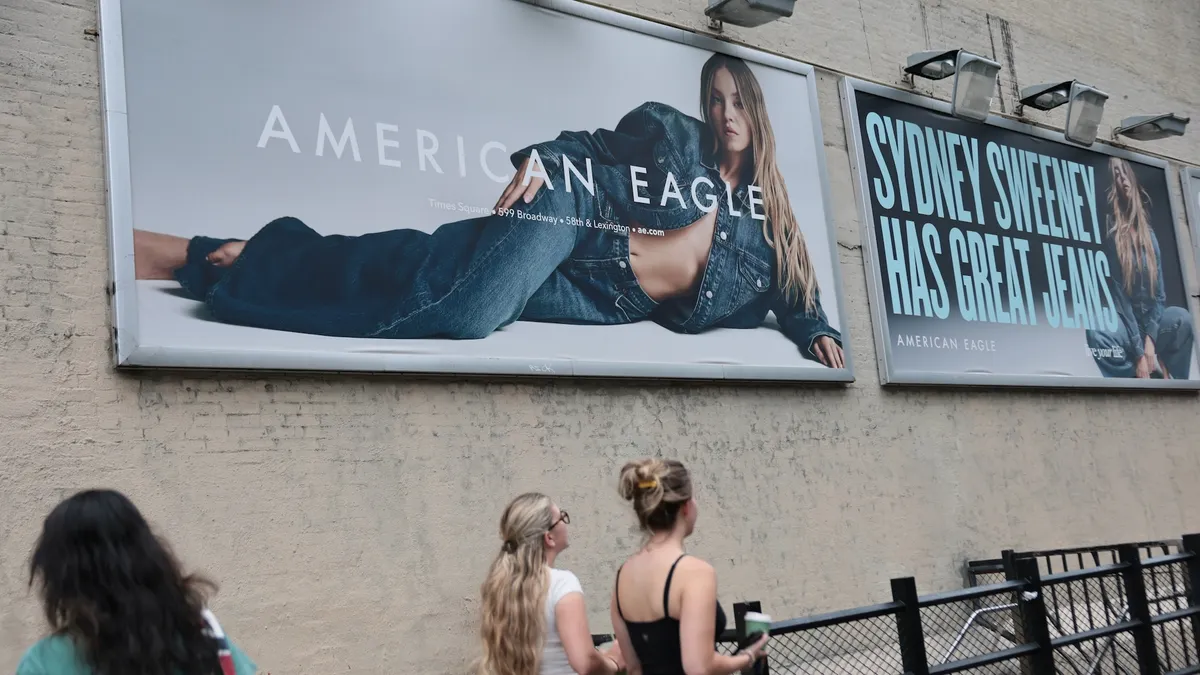NEW YORK — At a time when consumer fickleness toward brands is on the rise, establishing a strong loyalty program to keep customers coming back can be paramount. This is particularly true of categories under mounting external pressures like retail, but marketers can't fall back on a deals-and-discounts approach to win over shoppers who are looking to develop deeper relationships with their favorite brands, executives speaking at the National Retail Federation's Big Show on Sunday warned.
"Each day that we think that the democratization of the [retail landscape] has gone as far as it possibly can go, it ends up proving us wrong," Matthew Blonder, Reebok's vice president of marketing and digital brand commerce, said during a presentation at the annual conference. "For this reason — and a few other 800-pound gorilla reasons — it's imperative that we brands create deeper and more meaningful connections with our consumer each and every day."
Both Target and Reebok recently faced the steep task of reimagining their loyalty programs on a short time frame. Central to their strategies was the prioritization of a data-driven approach, which helped to better paint a picture of their audiences and also revealed some hard truths that, once addressed, expedited the turnaround process. An additional focus on simplicity and more value-led rewards turned up results.
Target Circle, which launched nationwide in October after a pilot phase in select markets, boasts 50 million active users today and was connected to 40% of the big-box retailer's sales during the recent holiday period, Rick Gomez, Target's executive vice president and chief marketing and digital officer, said during a talk preceding Blonder's. Reebok Unlocked, developed over 10 months and catering to both Reebok's regular customers and professional trainer network, has accrued 2.5 million U.S. members since its debut last March, with plans for international expansion in the near future.
"The power of a loyalty program is virtually nil unless you've used the data that it makes available to better target and personalize for your consumer," Blonder said. "Data was a key component of the program design as well as what ended up being the execution."
Keep it simple
With the evolution of mobile, digital and other tech-enabled channels, consumers have more ways to build loyalty than ever, as evidenced by the extensive NRF exhibitor floors filling the Javits Center in New York this week. However, both Reebok and Target opted for a streamlined mindset when redesigning their own programs.
"For us, simple meant that the program was easy to navigate," Reebok's Blonder said. "It required no app download or digital collateral. It meant that the program spanned all channels and distribution, including Reebok.com and our thousands of stores around the world."
Target's journey was slightly more complex since the brand previously had a smattering of loyalty offerings spread across its mobile app, RedCard credit and debit options and a separate social app called Cartwheel. Additional experiments with a points-based program called Red Perks led to a situation that became unwieldy and created feelings of alienation among some of Target's biggest devotees, Gomez explained.
"It wasn't just confusing to our guests, it was confusing to our team," Gomez said. "It also prevented us from unlocking the power of personalization, which is key to a winning marketing and overall retail strategy today."
Target ended up rolling Cartwheel into its main mobile app while preserving the network's rewards offers, some of which achieved a two times higher redemption rate under the Target Circle umbrella, Gomez said.
Hard choices
But adopting a simpler approach surfaced some tough decisions to grapple with as well. Red Perks, in particular, was one area that made sense conceptually but proved too transactional to meet Target's needs, per Gomez.
"At the time, there was a lot of pressure on marketing to launch perks nationally," Gomez said. "The data and everything our guests were telling us made it clear that we needed to take a different approach."
Qualitative and quantitative research similarly affected how Reebok thought about rewards that could create more value than the type of always-on discounting that Blonder described as "indefensible" and a "race to the bottom" strategy for retailers.
Data-driven analysis yielded what are now the pillars of Reebok Unlocked, such as exclusive product drops and experiences for traditional consumers and professional development resources for the brand's more elite certified trainers. Of equal importance, however, was how that same intensive testing helped cull appealing rewards perks that would ultimately be too costly or time-intensive for Reebok to properly curate, according to Blonder.
"Before we began, we had many hypotheses as to the rewards that our consumers would find meaningful. In order to ensure that our program had the highest propensity for success straight out of the gate, we took a pause in our race to launch to deeply test our hypotheses across a variety of segments," Blonder said. "Doing so proved to be critically valuable to our success."























